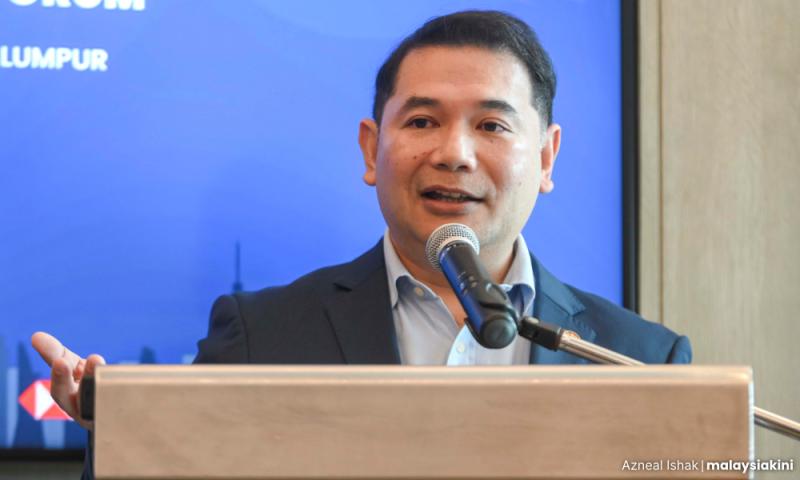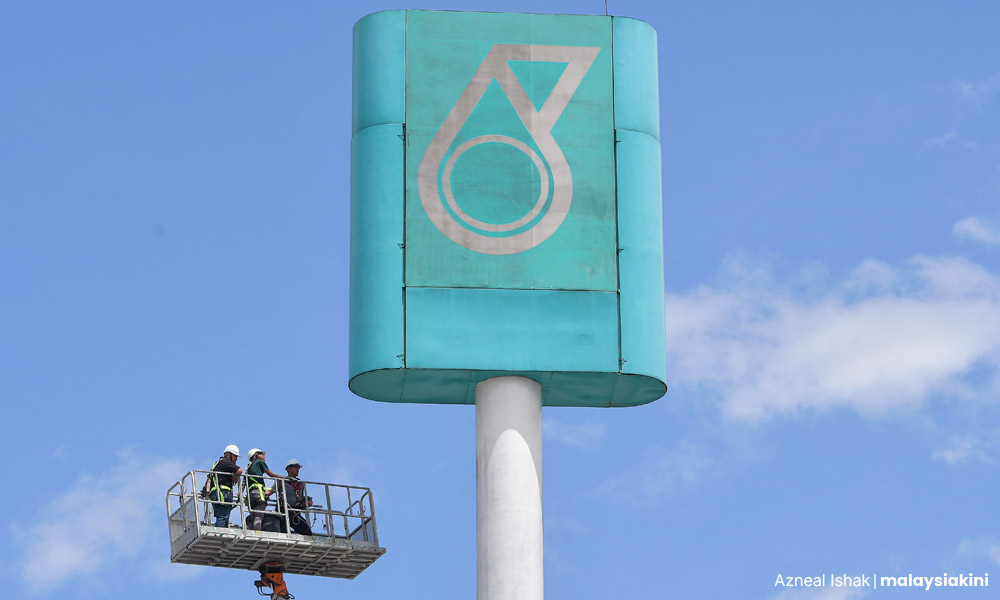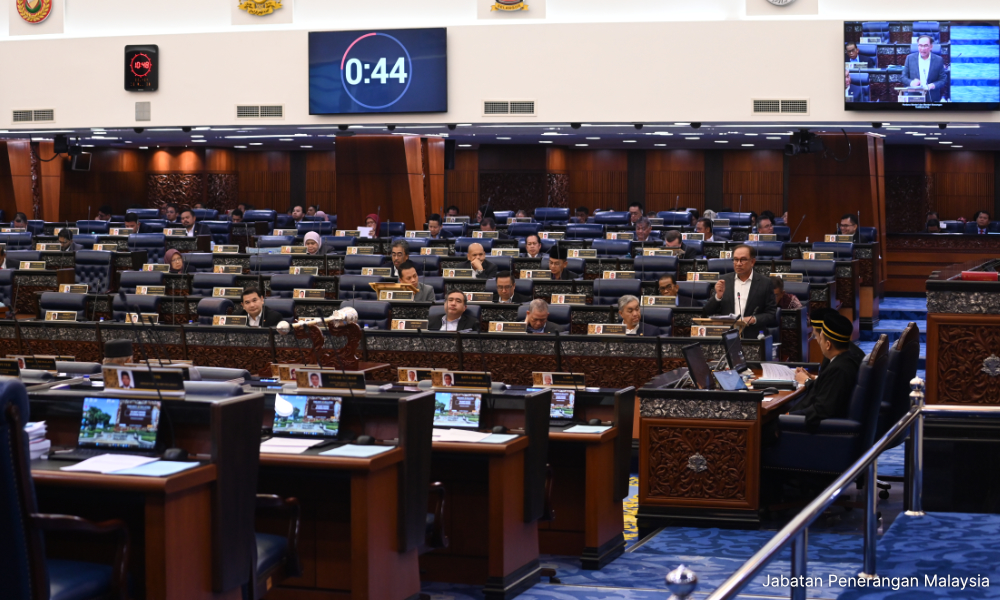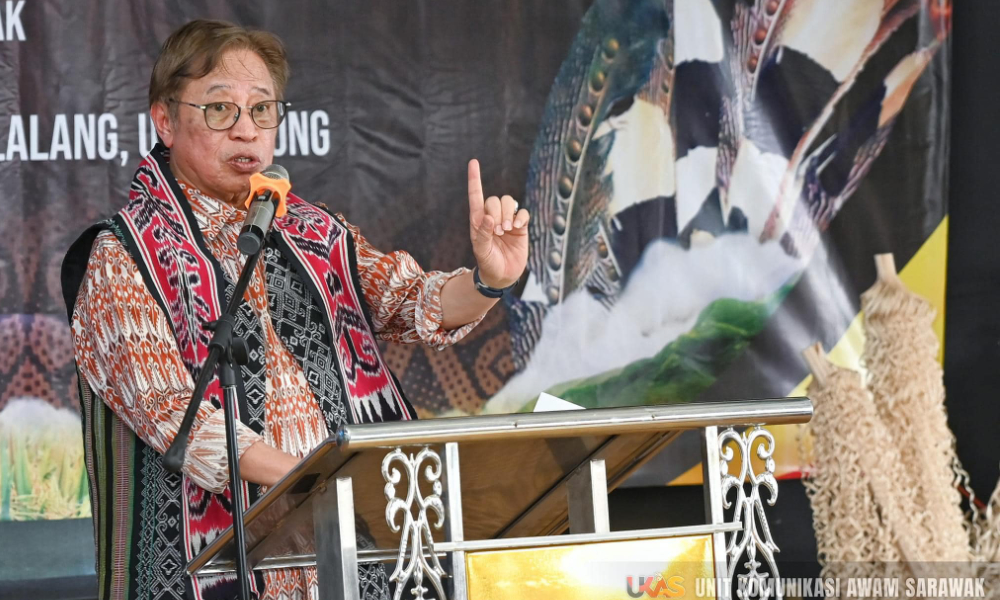
Experts want more details on Rafizi's carbon storage proposal
Published: Jul 17, 2024 12:15 PM
- UPDATED 10.02AM | Added the information on what carbon storage is.
Experts have reacted positively to Economy Minister Rafizi Ramli’s Carbon Capture, Utilisation, and Storage (CCUS) project in Terengganu, Pahang, Sabah, and Sarawak but stress that more details are needed.
These include data on carbon emissions, biodiversity, socioeconomic impact, and cost.
“We need more scientific data on carbon emissions and more details before they launch the project.
“This will certainly affect biodiversity in general, including human socio-economy,” Ecological Association of Malaysia president Ahmad Ismail told Malaysiakini.
Carbon storage refers to a complex and relatively new technology to capture carbon dioxide produced in power generation or industrial activity, transport it and then store it in permanent storage deep underground, including in the seabed.

Various environmental groups argue the costly technology bears risks of leaks that can damage marine biodiversity and the larger environment and allows greenwashing by corporations who use it to justify continuing carbon-intensive operations.
Based on contracts awarded for the Petronas Kasawari carbon capture infrastructure in Sarawak, the project is estimated to cost RM4.5 billion - a figure environmental groups said could have paid for hundreds of megawatts of solar panel capacity to transition to greener energy.
Water quality expert Maketab Mohamad also raised concerns about the high cost and technological uncertainties due to the lack of concrete details.
It was reported last year that the Oslo-based firm Rystad Energy estimated that Petronas could spend as much as US$260 million (RM1.21 billion) by 2025 to establish itself in the CCUS market.
“The CCUS project would be good for the world and humanity. But it would be a costly project and still has many unknowns technologically.
“Rafizi is talking as a politician and we have to wait to see the fruition of his political banter into reality,” Maketab added.
States ideal for project
Earlier this week, Rafizi said the government had identified the four states as potential leaders in the CCUS industry because they have decommissioned oil wells and existing terminal facilities suitable for CCUS activities.
CCUS, one of the pilot projects in the National Energy Transition Roadmap, is a high-impact industry that is expected to bring economic benefits to the states involved.
According to Rafizi, the government is finalising the CCUS-related bill to be tabled in the Parliament this November, before key decisions on the industry can be made next year.

In the meantime, he said the federal and state governments will also act as facilitators between CCUS industry operators such as Petronas and customers, including foreign investors.
Rafizi said Terengganu’s existing terminal facilities in Kerteh made it a potential pilot site.
“Kerteh is a complex for Petronas petrochemical industries. The wetland can be used as a model of CCUS but we need to have a good team headed by the right person,” said Ahmad.
Maketab agreed that the project was viable in Terengganu, especially in the petrochemical industrial areas of Paka and Kerteh.
Chong Yen Mee, who is on the United Nations Framework Convention on Climate Change roster of experts, concurred.
“As all the states mentioned have started to explore the use and production of hydrogen, I believe the development of the CCUS industry is viable in Malaysia.
“This is because the CO2 captured by CCUS will mainly be used rather than stored underground.
“The hydrogen produced from CCUS operations can be used to decarbonise various industrial processes and even be exported to other countries,” she said.
She added that Sarawak Premier Abang Johari Openg had announced plans for Sarawak to commence hydrogen exports by 2027, with Japan and South Korea already on board as confirmed importers.

Sarawak Premier Abang Johari Openg
“The initiatives mooted by the Sarawak government have attracted the interest of other state governments to explore such efforts. Some of the states have unused or abandoned oil wells like Sarawak, so carbon storage can still be implemented with regulations and safety measures in place.”
Strategic plan needed
Given the nascent stage of the project, the experts urged the government to collaborate with the private sector to develop robust policies.
“CCUS projects are generally still first-of-a-kind and therefore unproven, as the various components have not yet been combined repeatedly at scale.
“As a result, it requires a combination of direct and indirect incentives including carbon prices or voluntary markets, regulatory enablement, and risk management,” said Chong.
She added that the government needs to increase the adoption of environmental, social, and governance commitments by companies using CCUS technologies.
“These commitments should be backed by clear, standardised reporting and credible plans that can be scrutinised. Currently, it is too easy to make plans and too difficult to track whether and how companies are keeping them,” Chong said.
Ahmad said Malaysia must be clear about what we want and what we are supposed to do.
“We need the involvement of policy, laws, rules and regulations, technologies, and technical experts.
“Although the idea is good, it needs to develop the right and applicable formula,” he said.
While acknowledging the potential benefits of the CCUS project, Maketab said there are cheaper alternatives to reducing carbon emissions such as using renewable energy.
“The initiatives mooted by the Sarawak government have attracted the interest of other state governments to explore such efforts. Some of the states have unused or abandoned oil wells like Sarawak, so carbon storage can still be implemented with regulations and safety measures in place.”
Strategic plan needed
Given the nascent stage of the project, the experts urged the government to collaborate with the private sector to develop robust policies.
“CCUS projects are generally still first-of-a-kind and therefore unproven, as the various components have not yet been combined repeatedly at scale.
“As a result, it requires a combination of direct and indirect incentives including carbon prices or voluntary markets, regulatory enablement, and risk management,” said Chong.
She added that the government needs to increase the adoption of environmental, social, and governance commitments by companies using CCUS technologies.
“These commitments should be backed by clear, standardised reporting and credible plans that can be scrutinised. Currently, it is too easy to make plans and too difficult to track whether and how companies are keeping them,” Chong said.
Ahmad said Malaysia must be clear about what we want and what we are supposed to do.
“We need the involvement of policy, laws, rules and regulations, technologies, and technical experts.
“Although the idea is good, it needs to develop the right and applicable formula,” he said.
While acknowledging the potential benefits of the CCUS project, Maketab said there are cheaper alternatives to reducing carbon emissions such as using renewable energy.
Looks like more plans to loot
ReplyDeleteBefore ships and now carbon
These idiots cannot even get bread and butter issues right
and now want to play planet savers
Idiotic beyond belief
Dr Patrick Moore, phd, reputed as one of the original founder of Greenpeace. Have listened to his lectures, interviews and presentation on the current climate agenda, and pay attention to what he has to say. He is not the only skeptic, contrarian...listening to him arguing his case.
ReplyDeleteThe following presentation seems to be fairly recent, and shared here as representation of the case of the climate situation versus the noise of climate change in mainstream society...
https://youtu.be/GlcAKE04YvM?si=2Z5NeKaRhEejNC63
And there is Dr Willie Soon, formerly from Kangar, Perlis, now USA, interview with Tucker Carlson.
https://youtu.be/E7IdLzxzINw?si=ZaEiV_PqzacI7u54
Personally climate as science is pretty complex but sense that it has been manipulated as a pyschological control tool like others, hence the somewhat contrarian stance towards those who scream about the fear of climate change and the current drive towards "clean energy" amongst are TNB, etc...
No doubt, there are many problems confronting human need proper solution. Ocean cleanup of plastic is pretty amazing initiatives. Better awareness of single used plastic versus the ecological effect of s-u-p...
Coal-fired powerplant was source of problem but the technology and laws, regulation to minimize any pollutant has catchup significantly. Undeniably need to spend time reading on the subject, but the telltale signs of control is fear-mongering...